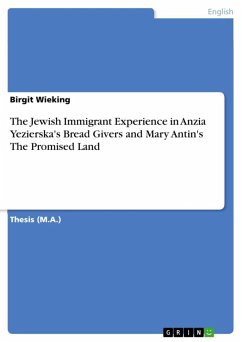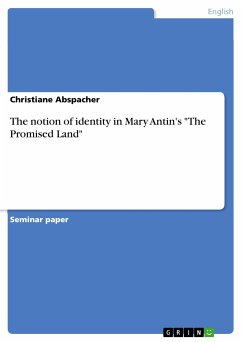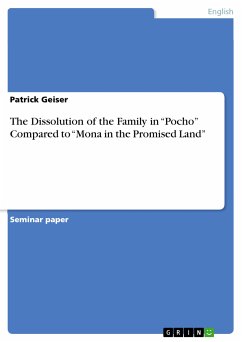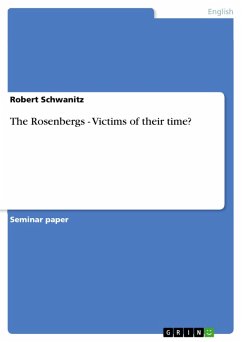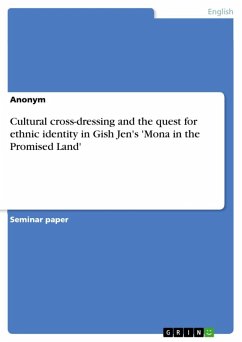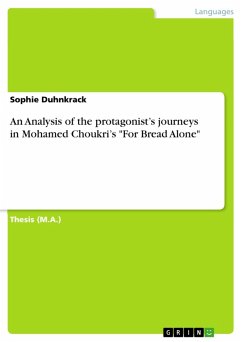Thesis (M.A.) from the year 2006 in the subject American Studies - Literature, grade: 1,7, University of Hannover (American Studies), language: English, abstract: I was born, I have lived, and I have been made over. Is it not time to write my life's story? [...] It is because I understand my history, in its larger outlines, to be typical of many, that I consider it worth recording. My life is a concrete illustration of a multitude of statistical facts. [...] I am only one of many whose fate it has been to live a page of modern history. We are the strands of the cable that binds the Old World to the New (Antin,PL13-5)2. I suddenly realized that I had come back to where I had started twenty years ago when I began my fight for freedom. [...] And now I realized that the shadow of the burden was always following me, and here I stood face to face with it again. [...] But I felt the shadow still there, over me. It wasn't just my father, but the generations who made my father whose weight was still upon me (Yezierska,BG295-7)3. These are two quotations by two immigrant women - both experiencing an incisive and complete change in their young lives through the immigration from Eastern Europe to the United States of America at the end of the nineteenth century. This thesis investigates their individual immigrant experience that they claim to be representative of the lives of many. Immigration has always exerted a great influence on American life. Towards the turn to the 20thcentury, the United States was confronted with the largest stage of immigration ithe nation's history. From 1890 on, a total of twenty million people entered the country until the 1920s (cf. Di Pietro, Ifkovic 6). Immigrants at the time were mainly from Southern and Eastern Europe; the largest groups were formed by Italians, Hebrews, Polish, Germans and English (cf. Gabbacia 140). On the one hand, the rapidly developing "economic expansion" (139) in the US required human labor; on the other hand, life in Europe was determined by famine and epidemics as well as political and religious persecution, to outline briefly the most important reasons for this big wave of migration. The conflict between the immigrants' expectations of a better life in the New World and the actual living conditions as well as the political climate the immigrants had to face in the United States has been treated in literature in many ways. The examination of cultural or ethnic identity and the process of assimilation, in this case Americanization, and its effects are very important issues in immigration literature as well.
Dieser Download kann aus rechtlichen Gründen nur mit Rechnungsadresse in A, B, BG, CY, CZ, D, DK, EW, E, FIN, F, GR, HR, H, IRL, I, LT, L, LR, M, NL, PL, P, R, S, SLO, SK ausgeliefert werden.

